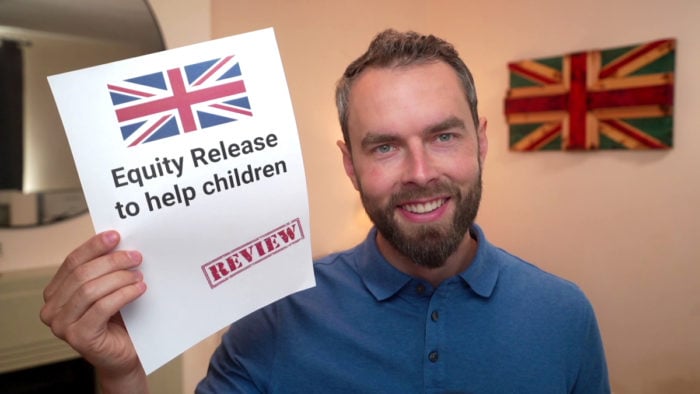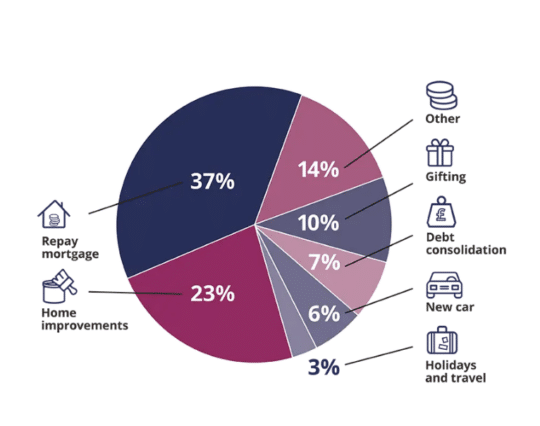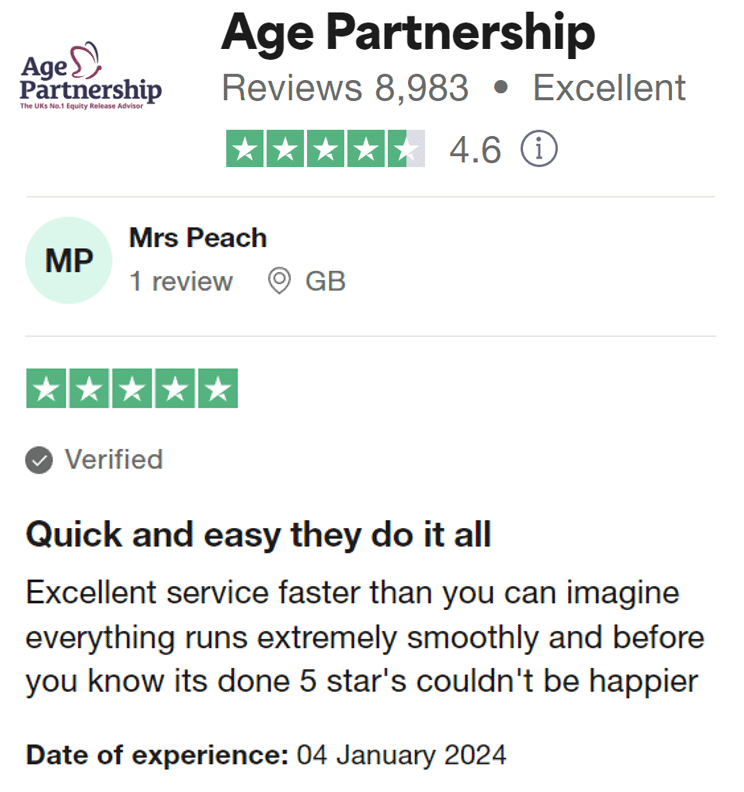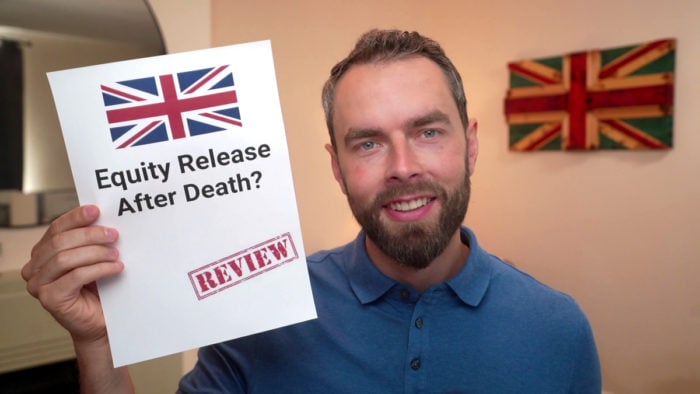Equity Release to Help Children – Complete Guide
Our preferred equity release adviser is Age Partnership. For free and impartial money advice you can visit MoneyHelper.

Our preferred equity release adviser is Age Partnership. For free and impartial money advice you can visit MoneyHelper.
Are you keen to understand more about equity release? Perhaps you’re wondering if it could help your child buy a house. Welcome to our complete guide! Each month, over 7,000 people visit this site for guidance on equity release.
In this article, we’ll answer your questions about:
- What equity release is and how it works.
- Getting a fair quote for equity release.
- The good and not-so-good points of equity release.
- How equity release money can be used.
- If you can give equity release money to your children.
We know that equity release can seem tricky. It’s a big decision with many things to think about. But don’t fret; we’re here to help. We understand your situation and have lots of useful advice to share.
So, let’s take a closer look at how equity release might help your children step onto the property ladder.
Stick with the Equity Release Council
The Equity Release Council (ERC) is a group that creates rules and guidelines within the equity release industry. These rules and guidelines are made to protect homeowners and offer them greater assurances.
Lenders and financial advisers can become members of the Equity Release Council but they are not forced to join. It can be in their interest to become members because many homeowners will only consider an equity release plan from a member because they benefit from additional assurances and guarantees. Only legitimate companies that are authorised and regulated by the Financial Conduct Authority can join.
To give you an idea of why sticking with Equity Release Council members is usually better, here are some of their rules:
- Homeowners must never be evicted from their homes or forced to sell their homes unless they lie on their application, are no longer living at the address or are allowing the property to fall into serious disrepair.
- Homeowners must be allowed to move home and take their equity release plan with them when the new property is considered suitable.
- Lenders cannot recover debts that exceed the value of the property when it is sold. This is known as the negative equity guarantee.
Can I give the loan to my children?
Some seniors using an equity release plan use it for home repairs or buying a nice car, but the more generous of us decide to give some or all of their loan to their children. The most common reason for doing this is to help them get on the property ladder. However, there may be other reasons for doing this, such as helping them start a new business.
Giving equity release to your children is allowed because you can spend the loan however you wish.
While unfortunate, an equity release loan can also be used to buy out your spouse in the event of separation.
How equity release could help
More than 2 million people have used Age Partnership to release equity since 2004.
How your money is up to you, but here’s what their customers do…
Find out how much equity you could release by clicking the button below.
In partnership with Age Partnership.
Should I release equity to help them?
Releasing equity to help your children may not be financially beneficial in the long run because they would receive more from you if they waited to receive your inheritance. However, finances are not the only consideration. You may benefit from seeing your children access quality education and get a good career, or you may be happy and feel satisfied to help them buy their first home.
It is an entirely personal decision that should be backed up with the correct knowledge and guidance from an equity release professional.
The bank of mum and dad
The bank of mum and dad is no longer just a tongue in cheek phrase to describe a little financial support from parents. It is being heavily relied upon by younger generations, especially millennials who have now experienced the financial crash and the pandemic in their early working lives.
In fact, the latest research highlights how big the bank of mum and dad really is, especially when it comes to helping their children buy their first home. The Independent reports that 40% of first-time buyers are receiving some financial backing from their parents to complete their property purchase.
Join thousands of others who release equity
Age Partnership have helped over 2 million people release equity from their home.

Mrs Wareham
“I am more than pleased to have taken out Equity Release with Age Partnership.”
Reviews shown are for Age Partnership. Search powered by Age Partnership.
Can I use it to avoid inheritance tax?
You might be wondering if you can use equity release to avoid inheritance tax. Inheritance tax is only applied to valuable estates that are passed to non-spouses or civil partners above £325,000. If you pass on a property to a child within your estate then the threshold increases to £500,000. Because you may have to sell your property to go into care, there is a risk that you will not pass on a property and the threshold will decrease.
Furthermore, any money that is gifted within seven years prior to death is also subject to inheritance tax. So releasing equity and giving the money to children and dying within seven years will not help you avoid inheritance tax on this money. It will do if you live for more than seven years after giving the money away.
There are ways that equity release can mitigate inheritance tax, but these methods provide some risk and should be discussed with your financial adviser.
Can it be used to pay for school fees?
Another common reason that senior homeowners take out equity release is to help their children or grandchildren pay for school fees. This may include private schools or university tuition.
It could be a wise investment that benefits their loved ones’ lives in unquantifiable ways over their lifetime. If it lands them a better-paying career, it might even be financially advantageous over the long term, despite the high costs of equity release.
How can I help them get on the property ladder?
If you are part of the bank of mum and dad, you’re probably wondering how you can help your son or daughter get on the property ladder. Equity release is one option.
Sometimes equity release is avoided because it takes away from their children’s inheritance. But if you are giving the money to children who will benefit immediately, and you get to witness that benefit, then it is an even more attractive option.
A home equity release loan can also be used in situations of divorce or separation to provide the person leaving the house with an opportunity to purchase another property, thus reducing stress on the children involved.
Pros and Cons
The primary benefits of equity release are:
- Cash lump sum or drawdown
- The money is not taxed
- No repayments required
- No rent needs to be paid to keep living at your home
The main disadvantage of equity release is the overall cost. You may have to pay back double or triple, which reduces your children’s inheritance. It’s almost impossible to get out of the agreement too, due to high early repayment fees.
Quick recap
Equity release can be used to help children with their own finances. There are scores of senior homeowners choosing equity release and giving some or all of the loan to their children to help them get on the property ladder, which is proving more difficult than ever. Other reasons that the money is given to children is to help fund private school fees and university, or to start a new business.
In rare situations, it may even help their children avoid inheritance tax, but this is not a straightforward issue and should be discussed with a financial adviser first.


